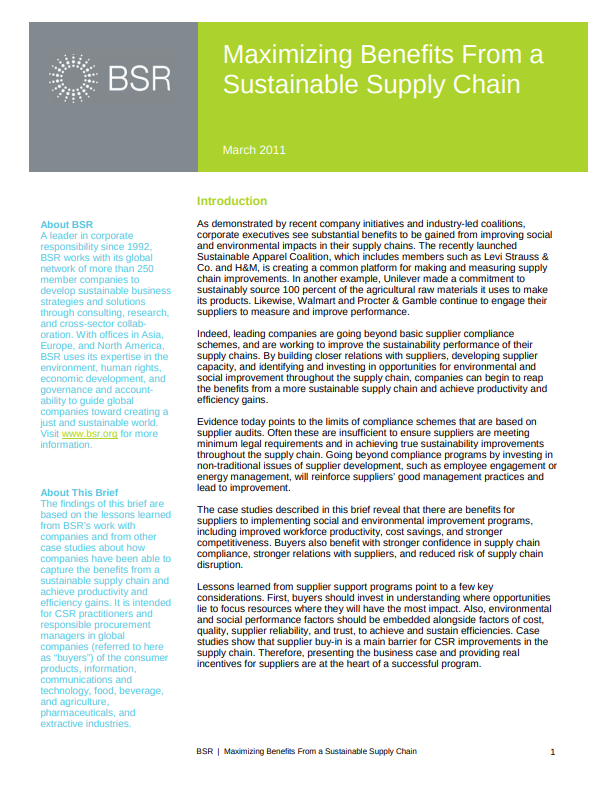The case studies described in this brief reveal that there are benefits for suppliers to implementing social and environmental improvement programs, including improved workforce productivity, cost savings, and stronger competitiveness. Buyers also benefit with stronger confidence in supply chain compliance, stronger relations with suppliers, and reduced risk of supply chain disruption.
Lessons learned from supplier support programs point to a few key considerations. First, buyers should invest in understanding where opportunities lie to focus resources where they will have the most impact. Also, environmental and social performance factors should be embedded alongside factors of cost, quality, supplier reliability, and trust, to achieve and sustain efficiencies. Case studies show that supplier buy-in is a main barrier for CSR improvements in the supply chain. Therefore, presenting the business case and providing real incentives for suppliers are at the heart of a successful program.

